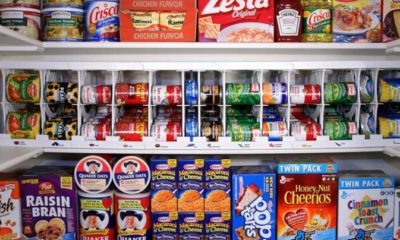In a resolute effort to combat the escalating food security crisis gripping Nigeria, President Bola Tinubu has declared a state of emergency.
This unprecedented measure grants the government the authority to take extraordinary actions aimed at improving food supply and affordability, which have been severely impacted by surging prices.
Speaking at a media briefing in the capital city of Abuja, Dele Alake, a spokesman for President Tinubu, outlined the key steps that will be undertaken to address the crisis. One of the strategies involves clearing forests to create additional farmland, which is expected to boost agricultural output and alleviate food inflation. These drastic measures come on the heels of the president’s recent decision to eliminate fuel subsidies and implement sweeping exchange-rate reforms since assuming office in May.
The relentless rise in food prices has made sustenance unattainable for a vast majority of Nigerians, leaving them burdened by hardships. Alake emphasized that this dire situation has resulted in a significant decline in demand, thus jeopardizing the entire agriculture and food value chain.
Nigeria, as Africa’s most populous country, has witnessed a sharp spike in food and transportation costs following the removal of fuel subsidies, which were costing the government a staggering $10 billion annually but had kept gasoline prices among the lowest globally.
To rejuvenate the agriculture sector, the government intends to channel the savings from the fuel subsidy elimination. Among the proposed measures is the establishment of a National Commodity Board responsible for monitoring food prices, maintaining strategic food reserves, and mitigating sudden price fluctuations. Furthermore, the central bank will continue to provide funding for the agricultural sector, sustaining its growth and stability.
Additionally, the government plans to release 500,000 hectares of land, including the clearing of forested areas, to expand available farmland and enhance agricultural productivity. This ambitious move is intended to address the diminished farming activities caused by years of insecurity and recent flooding in Nigeria’s main food-producing regions, particularly in the north-central area.
Even prior to the subsidy removal, consumer price growth had surged to an almost 18-year high of 22.4% in May, with food inflation outpacing the overall rate by over two percentage points. The elimination of fuel subsidies is anticipated to push the price index even higher, potentially reaching nearly 30% by the end of the year, according to Tatonga Rusike, Bank of America’s sub-Saharan Africa economist.
The consequences of these price pressures are already evident in Borno State, situated in northern Nigeria, where food prices skyrocketed by 36% and transportation fares surged by 78% within a week of subsidy removal, as reported by Mercy Corps, a humanitarian organization working in the region. This distressing situation has led to heightened hunger and an increase in petty theft at the community level, exacerbating the already precarious circumstances faced by vulnerable populations. The report also highlights the impact on education, with more students unable to attend school due to the exorbitant transportation costs.
Nigeria’s declaration of a state of emergency showcases the government’s recognition of the severity of the food crisis and its commitment to finding tangible solutions. While the road to recovery may be challenging, these extraordinary steps aim to stabilize food prices, secure the availability of essential commodities, and restore hope to the millions of Nigerians affected by this crisis.

 Education4 weeks ago
Education4 weeks ago


 News3 weeks ago
News3 weeks ago


 Business3 weeks ago
Business3 weeks ago


 Technology3 weeks ago
Technology3 weeks ago


 Investment4 weeks ago
Investment4 weeks ago
 Investment3 weeks ago
Investment3 weeks ago
 Telecommunications4 weeks ago
Telecommunications4 weeks ago


 Banking Sector3 weeks ago
Banking Sector3 weeks ago

















